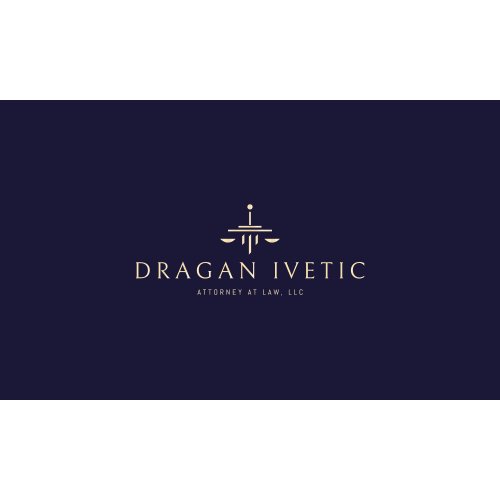Best Art & Cultural Property Law Lawyers in Illinois
Share your needs with us, get contacted by law firms.
Free. Takes 2 min.
Or refine your search by selecting a city:
List of the best lawyers in Illinois, United States
About Art & Cultural Property Law in Illinois, United States
Art & Cultural Property Law in Illinois focuses on the legal frameworks that govern the creation, ownership, transfer, protection, and restitution of art objects and cultural heritage items. This area of law integrates aspects of intellectual property, contract law, international treaties, state statutes, and local regulations. Because art and cultural assets can be of significant historical, cultural, and financial value, Illinois, home to major museums and vibrant arts communities, has specific considerations for protecting art and cultural property. Issues can arise not only in the context of private collectors and public institutions but also across state and international borders.
Why You May Need a Lawyer
Legal matters relating to art and cultural property can quickly become complicated given the unique nature of artworks and antiquities. Some common situations where legal help may be necessary include:
- Acquiring or selling artworks and cultural artifacts where title, authenticity, or provenance is disputed
- Restitution claims regarding stolen or unlawfully exported cultural property
- Donating, lending, or bequeathing art to museums, cultural institutions, or private individuals
- Copyright and moral rights issues for artists and their heirs
- Disputes related to art found in private estates
- Handling damages, destruction, or loss of art due to accidents or disasters
- Negotiating agreements for exhibitions, consignments, or loans of works of art
- Customs and import/export restrictions
- Estate planning involving valuable collections
- Tax issues related to art transactions and charitable contributions of art
Experienced lawyers can help navigate these matters and protect your interests, whether you are an artist, collector, donor, museum, or arts professional.
Local Laws Overview
Art & Cultural Property Law in Illinois is shaped by federal statutes, Illinois state laws, and local regulations. The Illinois Art Ownership Act recognizes the interests of buyers and sellers, and the Visual Artists Rights Act provides limited moral rights for artists. State laws address issues such as fraudulent misrepresentation of art, the sale of fakes and forgeries, and the recovery and return of stolen or lost artworks. The Illinois State Museum Act and other regulations control the custody and protection of archaeological finds and Native American cultural items.
Local museums and historical societies must comply with strict standards when acquiring and displaying cultural property, including federal Native American Graves Protection and Repatriation Act (NAGPRA) requirements where applicable. Urban centers like Chicago may have additional ordinances regulating public art, historic preservation, murals, and landmark designations.
International treaties like the UNESCO Convention and bilateral agreements also impact the movement and restitution of art and artifacts, so transactions involving foreign art require additional compliance steps.
Frequently Asked Questions
What is considered cultural property under Illinois law?
Cultural property generally includes objects of artistic, historical, religious, or scientific importance. This can range from paintings, sculptures, and manuscripts to archaeological artifacts, antiquities, and indigenous items.
How can I prove ownership of an artwork?
Proving ownership usually requires a combination of purchase receipts, bills of sale, provenance documents, insurance papers, photographs, and expert statements. Clear documentation and chain of custody are essential for establishing lawful ownership.
What should I do if I suspect a work of art is stolen?
Immediately consult legal counsel and notify local law enforcement. You may also need to alert organizations such as the Art Loss Register or the FBI Art Crime Team, and refrain from transferring or selling the artwork.
Are there special rules for Native American artifacts?
Yes, Illinois law and federal law significantly restrict the transfer, excavation, and display of Native American cultural items. The Native American Graves Protection and Repatriation Act (NAGPRA) provides mechanisms for the return of such property to tribal communities.
Can I import or export art from Illinois?
Importing and exporting art may involve customs regulations, permits, and compliance with treaties. Certain cultural objects may be subject to export restrictions or require licenses. Non-compliance carries civil and criminal penalties.
What rights do artists have after selling their works?
Under federal law, some artists retain "moral rights," including the right to claim authorship and to object to distortion or mutilation of their work. Illinois law may provide additional contractual protection, though coverage is narrower than in some other countries.
How are art forgeries handled by Illinois law?
Knowingly selling forgery constitutes fraud. Illinois statutes address misrepresentation and provide recourse for victims through civil suits or criminal prosecution. There are also rules for disclosure in art sales and consignments.
Do museums have special responsibilities concerning art loans?
Yes, museums in Illinois are expected to exercise due diligence when accepting art on loan, ensuring proper provenance, insurance, and care. They must also return objects claimed under valid restitution or repatriation requests.
Can I deduct charitable donations of art on my taxes?
Donating art to qualified institutions may provide tax deductions, but strict IRS guidelines apply regarding valuation, appraisal, and reporting. Legal and tax advisors should be consulted before making such gifts.
What legal steps should be taken when purchasing art?
Buyers should conduct thorough due diligence, secure documentation of authenticity and title, use clear purchase agreements, consider sales tax implications, and, when necessary, seek advice from a lawyer experienced in art transactions.
Additional Resources
For more information or assistance, consider contacting the following:
- Illinois Secretary of State's Office - Department of Cultural Affairs
- Illinois State Museum
- Chicago Department of Cultural Affairs and Special Events
- Illinois Historic Preservation Division
- FBI Art Crime Team
- American Alliance of Museums
- Art Loss Register
- National Trust for Historic Preservation
- Visual Artists Rights organizations
- Local bar associations with art law sections
Next Steps
If you have questions or face challenges related to art or cultural property in Illinois, consider the following steps:
- Gather all available documentation about the artwork or item in question
- Identify and list any individuals or organizations involved
- Write down a timeline of relevant events
- Consult an attorney skilled in Art & Cultural Property Law who understands both state and federal requirements
- Contact professional organizations or government agencies for preliminary guidance if necessary
- Follow your attorney's advice about next steps, which may include preserving evidence, filing claims, negotiating agreements, or responding to official inquiries
Early legal consultation can help protect your interests, ensure compliance with regulatory requirements, and resolve disputes in a timely and cost-effective manner.
Lawzana helps you find the best lawyers and law firms in Illinois through a curated and pre-screened list of qualified legal professionals. Our platform offers rankings and detailed profiles of attorneys and law firms, allowing you to compare based on practice areas, including Art & Cultural Property Law, experience, and client feedback.
Each profile includes a description of the firm's areas of practice, client reviews, team members and partners, year of establishment, spoken languages, office locations, contact information, social media presence, and any published articles or resources. Most firms on our platform speak English and are experienced in both local and international legal matters.
Get a quote from top-rated law firms in Illinois, United States — quickly, securely, and without unnecessary hassle.
Disclaimer:
The information provided on this page is for general informational purposes only and does not constitute legal advice. While we strive to ensure the accuracy and relevance of the content, legal information may change over time, and interpretations of the law can vary. You should always consult with a qualified legal professional for advice specific to your situation.
We disclaim all liability for actions taken or not taken based on the content of this page. If you believe any information is incorrect or outdated, please contact us, and we will review and update it where appropriate.
Browse art & cultural property law law firms by city in Illinois
Refine your search by selecting a city.












